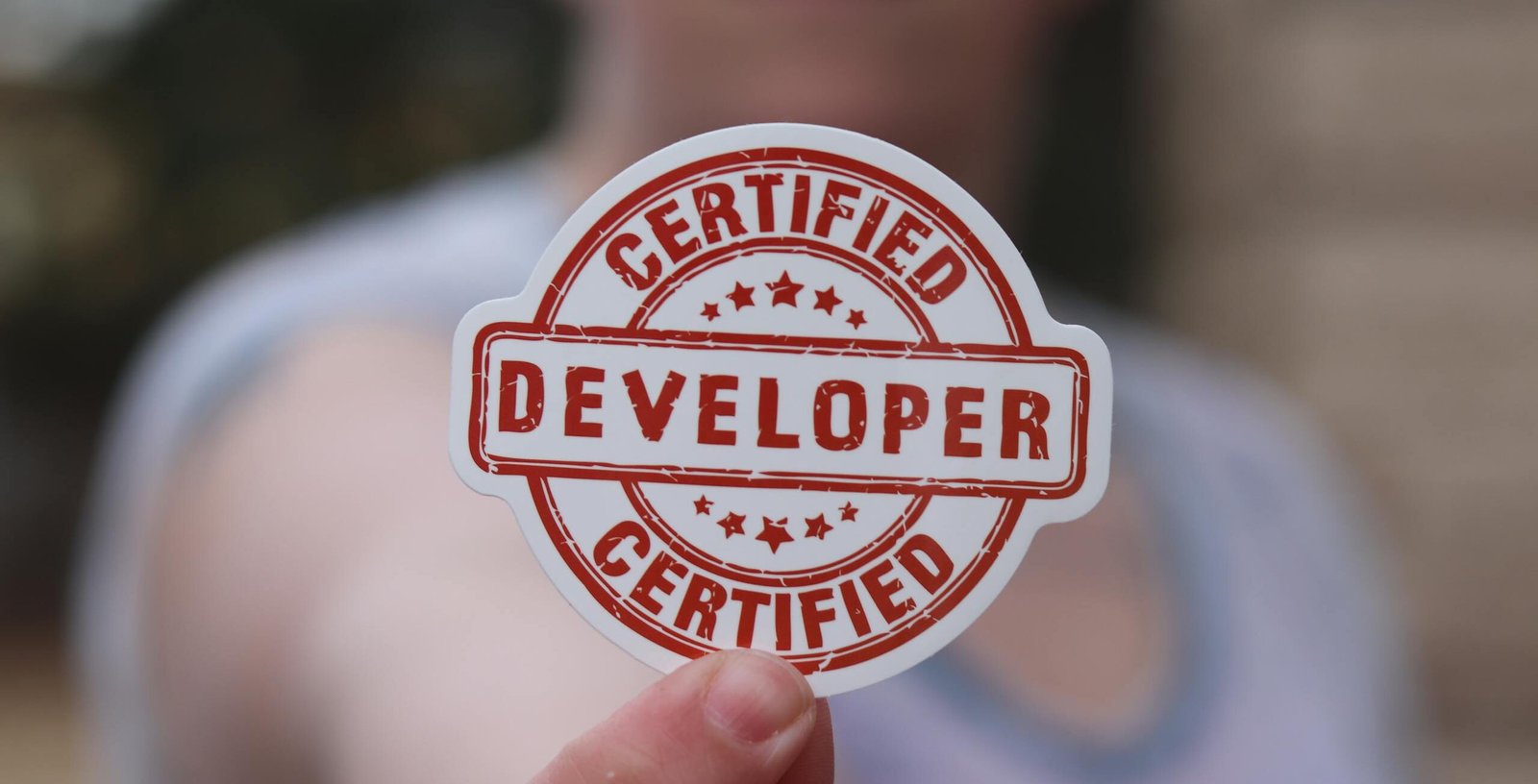Essential Skills for a Great Software Engineer in 2025
Software engineering jobs are fun as well as demanding. They are constantly evolving, and every time a modern technology trend picks up, there are new skills to learn. This was no exception when AI caught many people by surprise a couple of years ago: it was undoubtedly a game changer.
Additionally, we must not forget that besides technical abilities, if you want to succeed in your career (and this applies to any career), there are soft skills to sharpen. While there are strategies and well-documented techniques, these skills are more an art than a science. They require a lot of practice, trial and error, and continuous improvement.
In a nutshell, I gathered the following list of the skills that I consider essential to begin learning if you aim to achieve greatness in your software job in 2025. Of course, some of these are advanced topics, so don’t get frustrated if you haven’t had too much practice with them. And yes, I included AI at the end on purpose.
Mastery of Programming Fundamentals
Software engineers must be able to articulate fundamental programming concepts. Most big-tech-company interviews focus not on a specific programming language, but on algorithms and data structures. Even for more advanced developers, I strongly suggest getting a refresher from time to time.
- Algorithms: Get a firm understanding of the diverse types of algorithms like search, ordering, and recursion.
- Data Structures: Learn how to effectively use variables, arrays, stacks, queues, lists, trees, etc.
- Big O Notation: Understand algorithm complexity, and how you can improve the efficiency and performance of your code.
Proficiency in Programming Languages (and Technology Stacks)
Let’s break this by complexity…
Level 1
When you feel comfortable with the fundamentals, most programming languages become easier to learn. From time to time (very likely you already do), I suggest you Google “best programming languages” and make sure you keep up with the most relevant ones. Maybe also learn a different one you haven’t worked with before.
Level 2
These programming languages are useful on their own, but they become most powerful when used with popular libraries and frameworks. Python has Django and Flask; JavaScript/TypeScript has React and Angular; NodeJS has Express and Vue; Java, C#, Ruby, Go, etc., each have their own. Make sure to pick at least one and become comfortable with it. Don’t forget to add a unit test framework, too!
Level 3
This is where you connect things together. Most applications will have a frontend, a backend, and a mechanism for storing data, plus some sort of means to serve each of these parts. You can choose whatever language and tools you want for each part, or you can choose a “preset”, better known as a stack.
These stacks are groups of languages, frameworks, libraries, and tools that have been widely studied, are proven to work nicely with each other, and therefore they are very well documented. A few examples:
- MERN stack: MongoDB, Express, React, and Node.
- MEAN stack: MongoDB, Express, Angular, and Node.
- .NET stack: ASP.net, C#, and SQL Server.
- LAMP stack: Linux, Apache, MySQL, and PHP
DevOps, Cloud, and System Design Knowledge
These are three different but related concepts. Some of these are advanced topics that most entry-level developers wouldn’t be expected to be experts on. But hey, we’re aiming for greatness here, not just the basics.
DevOps
Stands for not only the tools and best practices but the embedded culture, to fluently blend Development with Operations. The DevOps culture is originally expressed in three ways:
- First way: Flow – Being able to deliver high-quality software solutions to customers, as fast and frequently as possible. This is in great part conceptualized as the practices we know as CI/CD (continuous integration and continuous delivery), for which the most common practices are: integrating code frequently into a code repository (like Git), deployment pipelines, containerization, and orchestration (Docker and Kubernetes), among others.
- Second way: Feedback – Creating fast and continuous feedback loops between teams to detect issues early. This includes automated testing (unit, integration, and end-to-end), telemetry, blameless postmortems, and pretty much everything related to SRE (software reliability engineering).
- Third way: Continuous Learning and experimentation – Encourages a culture of innovation, learning from failures, and continuous improvement.
Cloud
This is knowledge about how to set up the infrastructure to host your software online. There are way too many tools to mention here, some of them being web servers, online databases, file storage, networking, virtual machines, etc. My recommendation is to start with a basic course in AWS, Azure, or Google Cloud, and then continue from there to what suits your situation the most.
System Design
This is how your software architecture is optimized for scalability, reliability, availability, maintainability, performance, security, etc. System design includes, but is not limited to, concepts like:
- Monoliths vs microservices
- API Design – Rest vs GraphQL
- Database design – SQL vs NoSQL, indexing, sharding, caching.
- Scalability patterns – Horizontal vs vertical scaling, load balancing, CDN, etc.
- Availability and Reliability patterns – Failover, redundancy, replication, blue-green and canary deployments, etc.
While all of these could look overwhelming, the internet has made it very easy to understand the basics with many courses using real-life examples while keeping it entertaining, like “let’s design Facebook” or “build an Instagram clone”.
Problem Solving and Critical Thinking
Now let’s talk about soft skills. Problem-solving and critical thinking are skills you likely already possess to some degree. After all, what would be fun about being a software engineer otherwise, right?
They are both half science and half art. There are multiple and different training courses you can find for each. They will speak about generally approved and very useful techniques. Ultimately they will depend on you to practice and learn what is best for you.
At a very general level, here are a few pieces of advice I can give you to have a general idea of what to practice:
- Become a master at breaking down complex problems into smaller, manageable tasks.
- Ask “why” repeatedly to find the root cause of a problem, rather than focusing on the surface symptoms.
- Use flowcharts or diagrams to help you visualize the situation.
- When debugging, avoid quick fixes unless absolutely necessary. Instead, aim to fix the underlying problem. Ask yourself if you found the best solution possible.
- Don’t accept information blindly. Question everything and challenge even your own assumptions.
- Practice “what if” scenarios to anticipate problems and develop contingency plans.
- Look at each problem from different perspectives.
- Embrace continuous learning and keep practicing.
Communication and Teamwork
Early in my career, I realized that being an introverted, lone developer who deals better with code than with people wouldn’t take me far. I would inevitably be placed in a team and need to collaborate with my teammates. Don’t get me wrong: I do like people. It’s just that, in the beginning, I was shy and didn’t know how to communicate properly.
Like everything, these are skills that can be acquired. Even when it seems that there are people who were born with them, it really just means that they learned them early in life. Make sure to look out for training courses; they are very good once put into practice.
In a nutshell, there are two main things you need to remember:
- Communication is about understanding and being understood. Make sure to begin with the first and practice active listening.
- Teamwork is about creating the means for easy and meaningful collaboration. Be kind, be inclusive, share ownership, and practice both giving and receiving.
Continuous Improvement
Developing a growth mindset is more important than ever. In this ever-changing industry, keeping up with the latest trends is crucial, especially since AI became such an imminent force.
Actively seek new learning opportunities, habits, and skills. Develop a habit of reading books or articles, watching educational videos, or taking training courses one at a time. Also, remember that it is as important to develop new skills as it is to refine existing ones.
If you want to hold yourself accountable, you can step it up a notch and create constructive feedback loops with your team or your supervisor, in search of new opportunities. This will also help improve your chances of getting recognition at work. Remember that it is also important to measure your progress.
Artificial Intelligence
For those asking, ‘Why should I learn all of the above if AI can do everything for me?’ Well, it can’t. At least not yet. AI is a very powerful tool and is indeed essential if you want to position yourself well in a software engineering job.
Myself, I end up using it more and more as a research assistant every day, instead of traditional search tools. My work team and I agree that prompt engineering is becoming a great part of our daily routines and that it helps us achieve things faster. We also agree that it still makes mistakes.
While AI is advancing at an unbelievable speed, it still needs supervision and someone knowledgeable enough to ask the right questions. That’s the main reason you are still required to learn everything listed in this article. Think of AI as a younger software engineering enthusiast that you hire as your personal assistant. It will do the research for you and suggest solutions, but it’s ultimately your responsibility to check if its response is correct.
Having said that, it’s imperative that you learn how to use it. If you’re worried that AI is taking over your job, that’s not likely to happen (at least not soon). But it’s more probable that you can lose it in favor of another engineer that does know how to.
So, first learn how to do prompt engineering properly. You will need to learn how to ask the right questions to get the right code solutions. Don’t forget about using it for creating unit tests and documentation, too. Second, research how to create agents with your favorite AI provider and use them to automate processes. A well-trained agent that is connected to your processes will allow you (or your product) to delegate repetitive tasks. And third, optionally, only if you really want to plunge into the details of the development of AI, you can take training courses about machine learning and large language models.
Conclusion
Achieving greatness in software engineering takes dedication and patience. Be aware that it will require time to get there, and there will be times when you may feel overwhelmed if you try to absorb everything at once. Take one step at a time and assess your progress frequently.
Hopefully, this list will help you get the broad picture of where you want to put your effort next.





